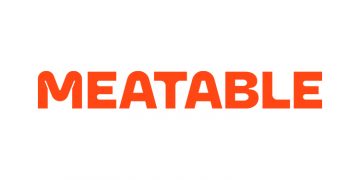Absolicon has designed a scalable solar thermal module that can be integrated with current and new UHT lines and enable a range of decarbonization options, including a reduction of greenhouse gas emissions, based on the customer requirement and location.
Tetra Pak UHT processing line for high temperature sterilisation of dairy products is the first solution to be offered together with a scalable solar thermal supply, with the potential to reduce fossil fuel usage up to 40 %. The first module is forecasted to be installed during 2024 thus creating revenue streams from the collaboration, before scaling to a worldwide market.
The collaboration has an impactful, measurable role to play in Tetra Pak’s ongoing drive towards net zero in its Scope 1, 2 and 3 emissions.
Nicole Uvenbeck Director Factory Sustainable Solutions & OEM Components, Tetra Pak says:
“At Tetra Pak, we are committed to enabling our customers to improve their environmental footprint through optimising their operations and equipment. We recently launched a new business solution called Factory Sustainable Solutions, within which we help our customers optimise on energy, water and CIP (Cleaning in Place) on a factory level.
“Absolicon’s solar thermal solutions are a good fit with this new Tetra Pak offering, as well as supporting our wider Net Zero Roadmap, where we have committed to reducing our value chain emissions and scaling decarbonisation solutions for our suppliers, customers and own operations. The collaboration with Absolicon is a good positive step in this direction, providing Tetra Pak with a new and exciting avenue to support customers to reduce their energy demands by replacing fossil-derived energy with solar thermal solutions.”
Joakim Byström, CEO of Absolicon, says:
“By implementing clean thermal supply to their equipment, Tetra Pak are once again proving they are pioneers. They have a unique access to the world’s food and beverage companies and can become a change driver for the sectors transition from fossil fuels to renewable heat. We are delighted to be part of this cooperation with Tetra Pak and to launch the first equipment line powered by Absolicon solar thermal, as part of our mission to reduce the world’s carbon emissions.”
In a typical food processing plant two thirds of the energy consumption is thermal energy (heat), with electricity forming the other third. As most of the thermal demand is in the form of low to medium temperature, the food industry is a perfect fit for solar thermal energy. Solar thermal can lead to dramatic cuts in CO2 emission when replacing fossil fuels. Put into context, heat generation today constitute 40 % of the world’s total CO2 emissions[i], according to the International Energy Agency.
Due to the performances and scalability of the Absolicon solar thermal module for Tetra Pak the design will decarbonize large parts of the UHT process heat and reduce fossil fuel usage.
Tetra Pak and Absolicon have today signed an agreement stating the scope and financial terms of the cooperation and will now enter the go-to-market-phase. Revenue streams will occur to Absolicon or Absolicon production partner when Tetra Pak sell a solar thermal module to existing or new customer operating a UHT line.
The first solar thermal module attached to a Tetra Pak UHT processing line is expected to be installed in Europe during 2024 and then scale to a worldwide market. Tetra Pak has 94 sales offices and the yearly delivery of new packaging machines, processing units and downstream equipment is over 3000 units. In total, Tetra Pak has over 135 000 units in operation producing close to 200 billion food and beverage packages per year.




















